No white Christmas, but white squirrel
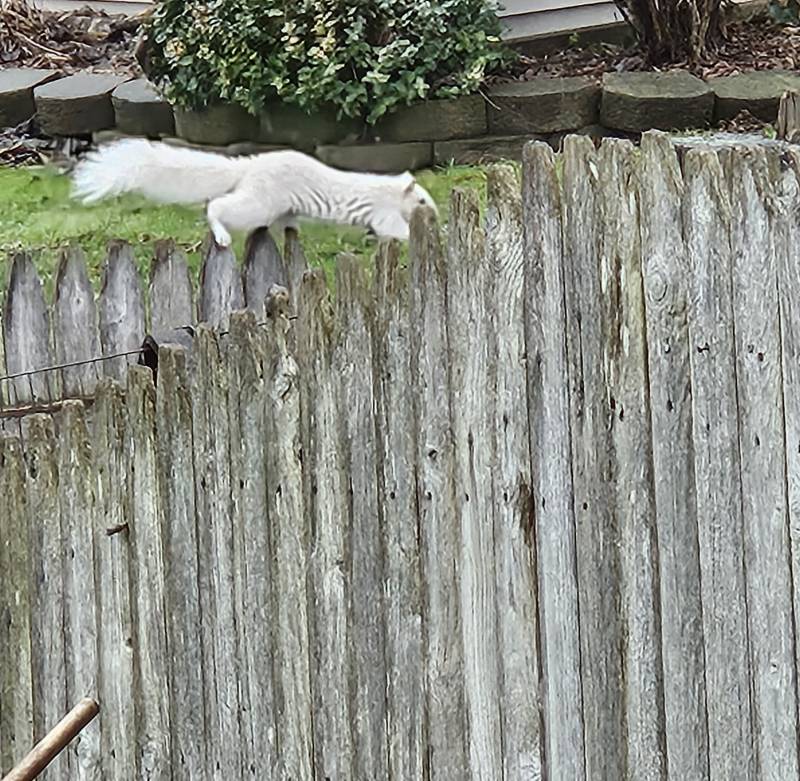
Photo submitted by Frank Capuano

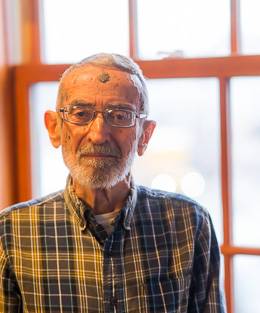
City resident and historian Larry Barnes studied the lives of Black people who lived, worked, and/or had gone to school in the city of Batavia at some point in their lives, and the resulting message was as much philosophical as it was statistical.
Barnes is grateful for the prior work of local writer Ruth McEvoy, who thumbed through news articles from 1880 onward, and developed a list of articles about people who were Black. “That was a starting point for me,” he said, “where they lived, what they were doing, if they were working.”
Those articles did more than record people’s actions and behaviors; they documented the limitations imposed on the Black population even after the slaves were officially freed in 1865, Barnes said.
There was discrimination, Barnes notes, by imposed and non-statutory means, including deed restrictions, employment restrictions, facility restrictions, such as at Godfrey’s Pond, land, mortgage, and property rental restrictions, and the deeply subjective problem of “driving while Black,” he said.
How did that impact the Black community? Less family wealth — three cents for every dollar of non-Blacks — and lower household incomes of 60 cents for every dollar, a shorter life expectancy, higher incidence of chronic diseases and a greater chance of dying in a pandemic, being shot by police, getting convicted of a crime and being imprisoned, he said.
One source that proved to be “very interesting” for his book, he said, was the local paper, which was quite specific in identifying people as being Polish or Italian or Black in news articles, especially when the tone of the piece looked unfavorably toward the person of color, he said. They would sometimes be boldly and crudely labeled, such as a “Black stick of licorice.”
Despite the obstacles, many Blacks have had notable achievements, he said, as documented on pages 14 through 19, including:
Lorraine Hansberry (1930-1965), a noted playwright and author whose plays were performed on Broadway and her best known work is “A Raisin in the Sun.”
Percy Julian (1899 to 1975), a research chemist and pioneer in the chemical synthesis of medicinal drugs from plants. His work laid the foundation for the production of cortisone and birth control pills.
Alain Le Roy Locke (1885 to 1954), a writer, philosopher, educator and patron of the arts who was a Rhodes Scholar and a significant contributor as a Black artist, writer, poet and musician to the Harlem Renaissance.
Barnes lists several random Black achievers, but more to the point of the book, Black Batavians have overcome and achieved much in their own right, namely the adversity of frequently having been descendants of slaves with limited knowledge of the individuals from whom they came from or precisely from there their ancestors originated, he said.
“They have been uniquely subjected to especially long-term persecution and discrimination, including being the target of Jim Crow laws,” Barnes writes.
“And we also observed that, largely as the result of their history, as a group, American Blacks fare less well than most other groups in personal wealth, income, health, and encounters with our country’s justice system,” he states in the book. “Finally, and this needs to be stressed, despite these differences, Blacks have, again and again, excelled in all cases of life activities. I have provided five pages of examples to drive home a point often ignored.”
There’s Mattie Butler, born in 1865, who was a personal cook for President Benjamin Harrison, who served from 1889 to 1893, and was a housemaid at Harrison’s executive mansion in Indianapolis. After later moving to Batavia, she worked at Scott and Bean’s and Henning’s department stores, dying in 1935.
Rev. Raymond Walker graduated from Byron-Bergen Central School and enlisted in the Marine Corps, later becoming a Genesee County Sheriff’s deputy and earning a master’s degree. Walker taught history at Batavia Middle School and later was assistant principal at BHS until he retired in 2005.
Dean Edwards, a BHS 1988 graduate, is an entertainer who works as a standup comedian, actor, singer, writer and musician who joined the cast of Saturday Night Live in 2001 for two seasons and has worked as a voice actor, staff writer and has appeared in commercials.
The late Dr. Diane London directed the medical response in 1994 when an Amtrak derailment injured 109 passengers near Batavia, and more than 500 volunteers responded. She was the emergency doctor and medical director at Genesee County Health Department, had a medical office in Batavia, and practiced emergency medicine at United Memorial Medical Center, St. Mary’s Hospital in Lewiston and Lockport Memorial Hospital.
Want to know about more awesome Black Batavians? The book, “Black Batavians: Who They Are, Their Local History, and Aspects of Our Larger Culture That Have Especially Shaped Their Experiences,” is on reserve at Richmond Memorial Library and available at Holland Land Office Museum, and Genesee County History Department.
By studying the lives of Black Batavians, Barnes spotted a trend, he said.
“What you find over a period of time, is that, before World War II, Blacks were employed in menial jobs that didn’t require much education, and after WW II, jobs were more evenly distributed, and Blacks began to move into positions that did require advanced education,” he said.
By the 1970s, the Black population had grown rather significantly, he said, by 10 percent, in the city of Batavia.
People from larger cities of Buffalo and Rochester were attracted to this area’s socio-economic, safety and physical attributes that came with a smaller, rural city, he said.
What did Barnes glean from his research about the Black population? That, because of their association with slavery, Blacks bring a different perspective — one that shapes how much of the Black population looks at the world, he said.
“Many people are surprised to learn there were slaves in Batavia in the early 1800s,” he said. “If you were a descendant of a slave, you wouldn’t know who your ancestors were. People who are Black often came here from a part of the country where Jim Crow laws are in effect.”
Bryan Stevenson, a Black lawyer, Harvard graduate and founder of the Equal Justice Initiative, asserts that “we will never achieve really good race relations in our society until we acknowledge and face up to our history,” Barnes said. “An attitude of white supremacy made slavery tolerable and, later, the Jim Crow era virtually inevitable.
“And it isn’t just a Southern problem, however, but an all-American problem. Racism permeates our society,” he said.
You can read more about Stevenson’s thoughts and Barnes’ reflections on the topic, and he leaves the reader with a challenge.
“In any event, it’s time for action,” Barnes said. “Each of us can play a part. What are you going to do to help end the legacy of slavery?”
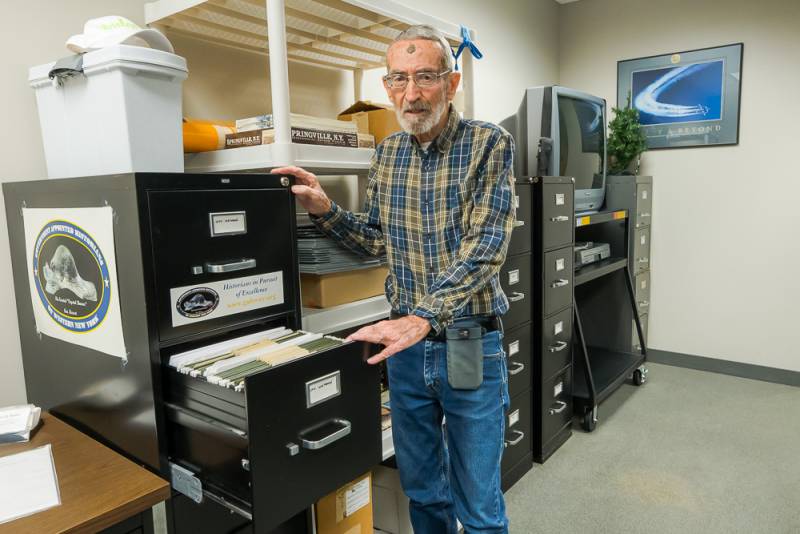
He may not have been a City of Batavia resident for long before being appointed city historian, but whatever Larry Barnes may have lacked in residential longevity, he made up for with a growing passion.
It was while serving as an assistant to then County Historian Sue Conklin that Barnes became involved in researching city government — sifting through all sorts of materials and, as a result, becoming quite interested in the city.
That was more than a decade and a half ago.
“It’s been a tremendous experience, I’m really going to miss it,” Barnes said during an interview with The Batavian at his second-floor City Hall office. “It’s been a major part of my life for 16 years.”
Since those humble beginnings, he has gone through a city centennial celebration, watched the unfolding process of the historic Brisbane Mansion — aka current police station — become a prospective boutique hotel or serve some other purpose as a new police facility moves toward final plans. He has researched several requests about homes that have physically been moved or relatives’ ancestors or other Batavia history, though he’s quick to tell you he’s not one’s personal genealogist. He has written books about the city’s most prominent people and places, and been quoted dozens of times over the years for news articles about the birthplace of western New York.
Batavia was once a village, founded in 1827, and became a city in 1915. Eight years ago, there was a grand centennial splash, despite a whirling blizzard that helped all ring in the New Year on Dec. 31, 2014.
In true western or upstate, take your pick, New York fashion, it was a windy, blustery, snowy, icy cold — and certainly not cooperative — evening for the plans the centennial committee had made for the outdoor portion of the event.
But Barnes had committed to do his part as city historian.
“I remember standing on a platform trying to give a talk to a very small audience,” Barnes said. “Most of the people had gone inside where it was warm.”
And now as we approach the city’s 108th birthday, and another eight years for Barnes since that frigid night, he couldn’t help but also recall how his predecessor didn’t think he had the chops for the job, having only lived in Batavia a mere few years and all. But he’s also well aware of the fact that it doesn’t take one’s personal upbringing to be a good historian.
Not that Barnes didn’t bring an attractive portfolio to the position; he began teaching at Genesee Community College in 1968, lived in the towns of Batavia and Byron and built a home in the City of Batavia in 2005, where he had lived for three years before taking the job.
The city’s first historian was William Coon, who seemingly fell into the role as the city attorney, and was appointed by the mayor in 1919. He died in office after serving until 1953, which is something Barnes most definitely did not aspire to, he said: “My goal was to not die in office,” he said.
The last historian was Corinne Iwanicki, who served from 1995 to 2007, and she was succeeded by Barnes, who was the sixth city historian and the first one to be paid, if only for a short time. The position was not paid until this past year, when City Council agreed to provide a stipend.
There also was no formal job description until former City Manager Jason Molino and Barnes worked on one that was officially approved by City Council in 2010.
Over the years, Barnes has researched various landmarks, people and happenings, such as where the first bridge was located in Batavia, when railroads changed to their current location and why, what happened to certain houses in the city, including some formerly located where the Southside roundabout is now.
Barnes received so many questions about relocated homes that he wrote a small book about 40 houses that have been physically moved to other locations.
“If I get interesting questions, I will do that,” he said.
His own questions piled up about a certain population in the city that seemed to go undocumented, and Barnes wanted to do something about that. While he noticed that quite a lot had been written about Italian, Polish and Irish residents whose families had emigrated to the United States, there was nothing about Black Batavians, he said.
The first simple but pointed question had to be; who is a Black Batavian? Do you go by the color of one’s skin, or facial features, or ancestors? Answer: the person is a Black Batavian if they or someone else defines them as such, he said.
For more about his latest book, go to: “Black Batavians: Who They Are, Their Local History, and Aspects of Our Larger Culture That Have Especially Shaped Their Experiences.”

Press Release:
Do-Re-Mi Preschool Music and Movement class
This class is designed for children ages 2 through 5, alongside their parent or favorite person. This session will have class on Saturday mornings from 10-10:45 a.m. in January (6, 13, 20, 27) at GO ART! in Batavia.
We will focus on seasonal song, play, motor and locomotor movement, instrumental exploration, vocal and rhythmic call and response, listening activities, storytime, and fun! The curriculum is designed to engage young learners through play and exploration while providing a safe and nurturing space for them to discover and grow important skills, such as language, cognition, and physical development, as well as support and encourage social and emotional learning.
Chelsea Miller is instructing this session and she has been teaching music in various capacities since 2015. She has received a Bachelor’s degree in Music Education from SUNY Fredonia, as well as a Master’s Degree in French Horn Performance from the University of Massachusetts at Amherst.
Currently, Chelsea teaches instrumental music to grades 4-12 at Elba Central School. To register your little one for this amazing class please visit https://goart.org/programming/exlporeart/exlporeart-children/, call (585) 343-9313, or email Jodi at jfisher@goart.org.
Game Night
Grab a friend and come on in to GO ART! on the first Wednesday of each month for our Game Night! Game night runs from 6-9 p.m. so bring your favorite game or see what we have to offer. From classic board games, and strategy games to card games there is something for everyone. Tavern 2.o.1 will be open.
Do you have any (board, strategy, or card) games you never play and are in good to excellent condition you don't want cluttering up your house anymore? We would be happy to take them off your hands and add them to our collection. Please call (585) 343-9313 or email info@goart.org.
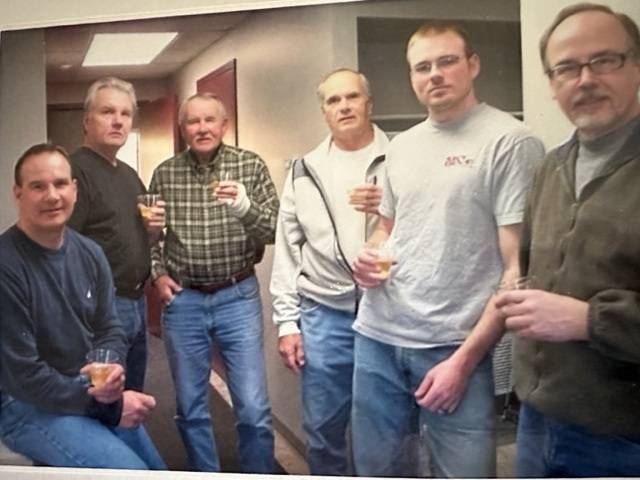
When Anthony Chmielowiec came to the United States in the 1910, he most likely knew that there would be hard work and uncertain times involved as he eventually pursued the American dream of becoming a successful business owner.
And even when he didn’t know something, he suspended and pushed beyond any potential self-doubt, as was the case when offered his first managerial job.
“And this is probably the best part of our history. He came over from Poland and he settled in Buffalo and didn’t really have a job. And he saw an ad in a local paper for a painting foreman, and he had no experience whatsoever,” his great-great-grandson Jack Jr. said during an interview with The Batavian. “But he went and told them he had experience. He was hired as the painting foreman, and he watched the other painters. He learned by watching the other painters. It was the beginning of our history.”
And what a history: From those early days of Anthony Chmielowiec’s paint contracting and paint store, which led to an office and shop at 450 Ellicott St., Batavia, the business has been shared amongst the men in the family — from Anthony in 1923 and his sons Adolph (aka Jack) and Raymond when they returned from serving overseas during World War II in 1946, to his son John Jack Sr. and Uncle Bob Chmielowiec in the 1980s, and then 13 years ago, it went to John Jack Jr. and Paul Chmielowiec.
A. Chmielowiec and Sons opened a paint and wallpaper store on Ellicott Street in 1948, and John Jack began his own painting contracting business with his two sons, John Jack Sr. and Robert (Bob) in 1965. As the business grew, they incorporated and changed the name to Chmielowiec Painting, Inc. Commercial and Industrial painting became their main source of business, including vinyl wall coverings, epoxy floors and wall protection.
Jack Chmielowiec then retired and his sons, Jack Sr. and Bob continued to grow the business. After 45 years, both of them retired in 2010, and sold the business to their sons, Jack Jr. and Paul Chmielowiec.
There’s no longer a shop attached to the name, and it’s a commercial/industrial painting business that caters primarily to the Rochester area, Jack Jr. said. His father, 79, was able to help celebrate the 100-plus-year anniversary of the business before he died on Tuesday.
“I think all the family was pretty proud of the fact that we’ve sustained the business for over 100 years,” Jack Jr. said. “It’s mainly because we provide quality work, we meet certain schedules, we have a strong relationship with the contractors we do business for. It’s a pretty simple model, but it seems to work. And we treat our people good, we have good guys. It’s about as simple as it gets.”
His father retired 13 years ago and had enough trust to let it go.
“When in a pinch and there was something he could do, he did it, but he kind of let us do our own thing,” Jack Jr. said. “I think it says a lot about the quality of the people in my family that passed it down to us. We get a lot of compliments on the quality of our work. At times they have other companies do the work and they say ‘we wish you were on the job.’”
His company does mostly interior painting work, and he can attest to the notion that although many people think everyone can paint, “everybody can’t paint.” So is there a secret to a job well done? Not really.
“Take your time and do what you’ve gotta do,” he said.
The company has downsized since the Kodak days when it had two shifts of 30 employees painting at the plant, he said. Today there are seven employees and the office is based on Prole Road in Batavia.
Photos courtesy of the family.
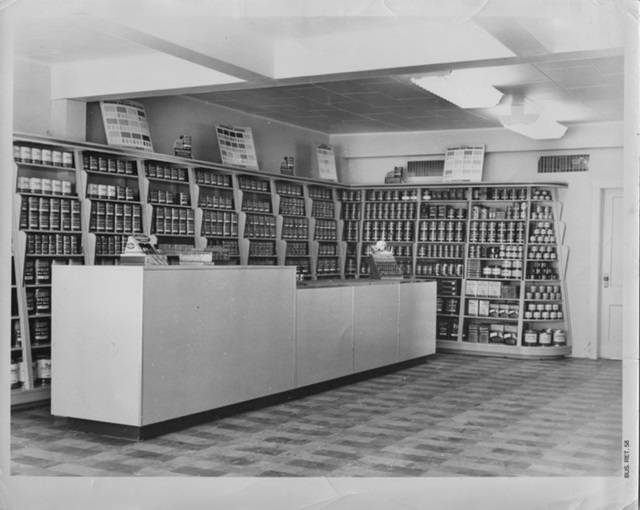
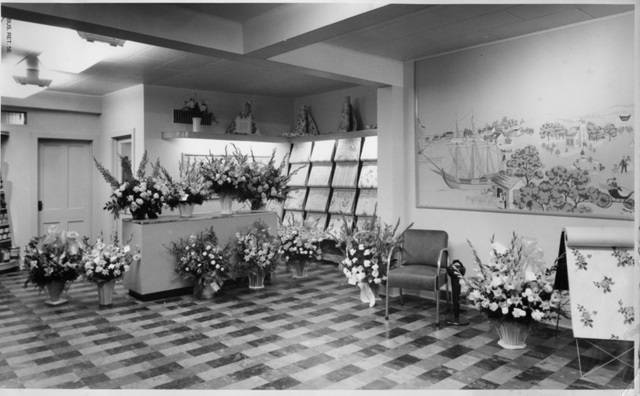
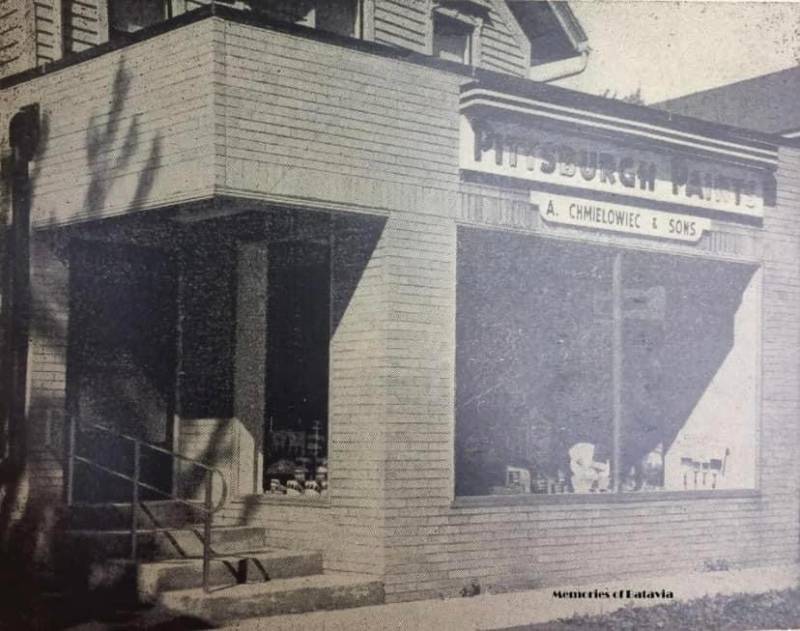
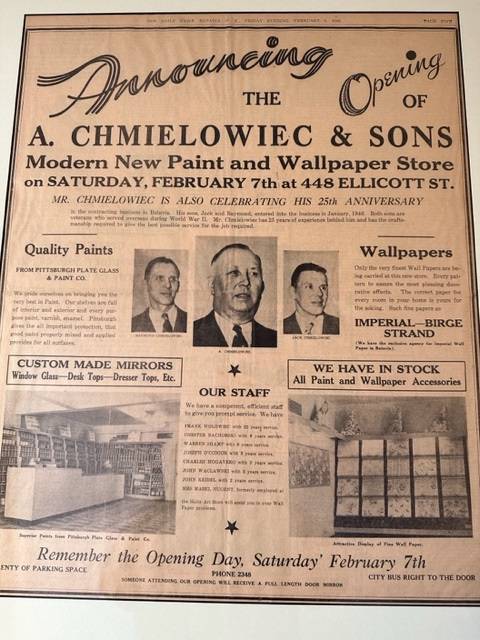
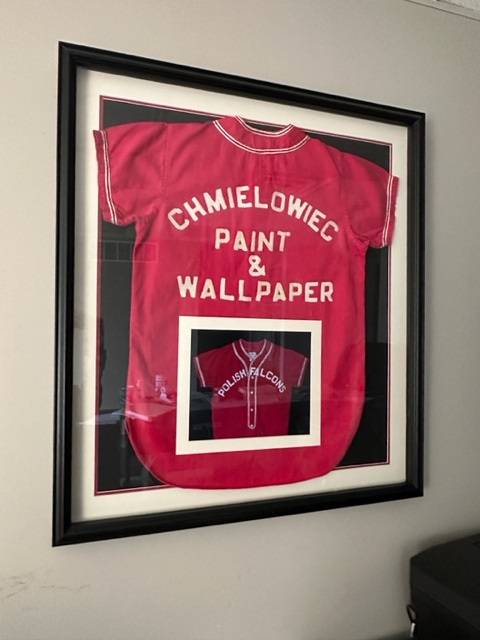

This is part two of a Christmas lights photo series. This one features Batavia residents' houses.
Photos by Steve Ognibene



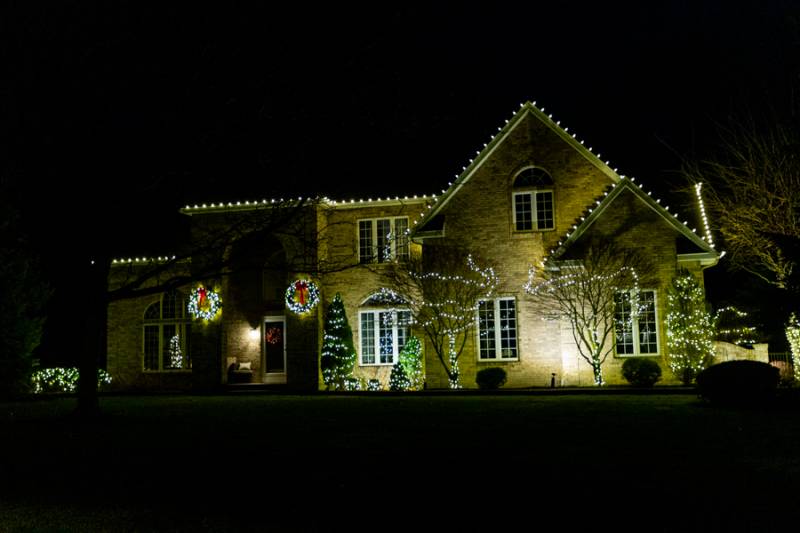



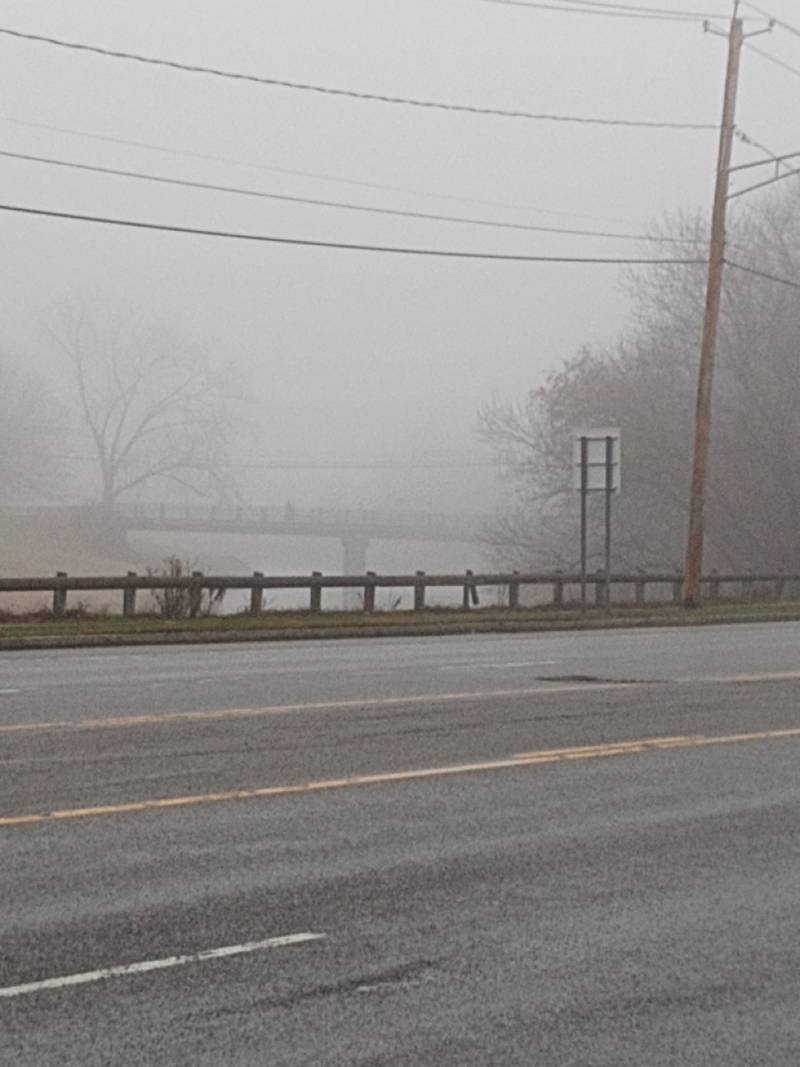
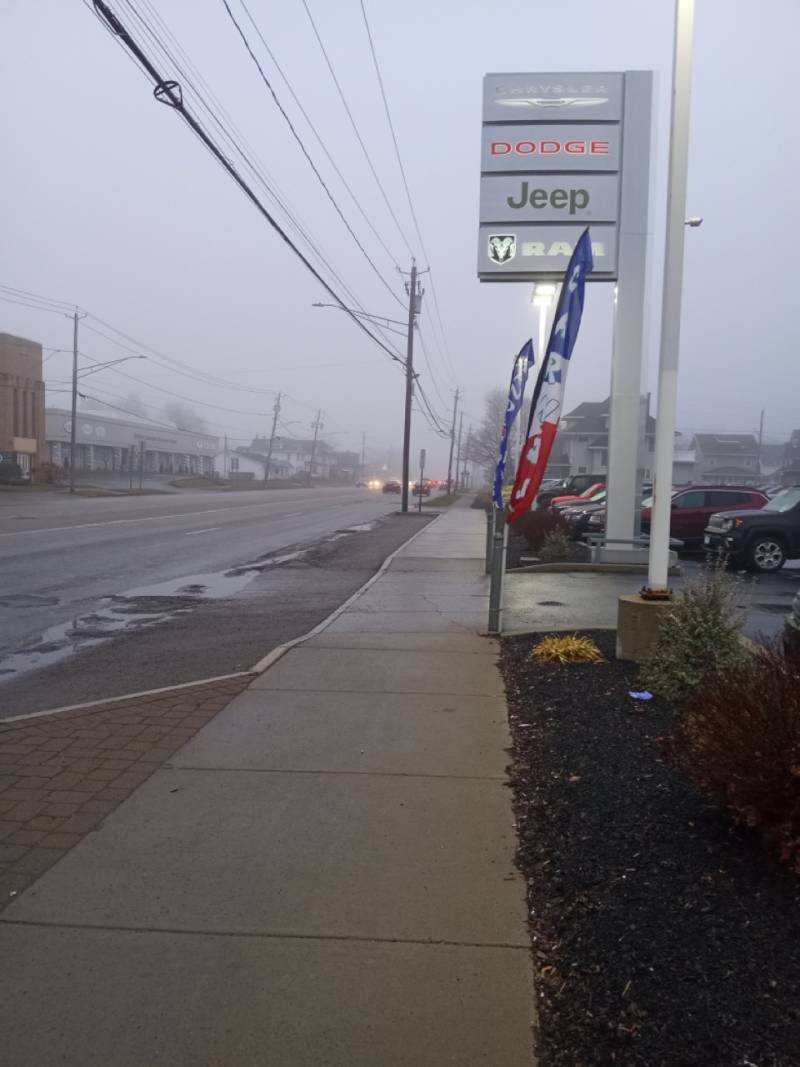
The Christmas Eve Service at City Church starts at 10 a.m.

Now, in addition to the colorful Christmas tree and holiday lights bedazzling streets such as on Redfield Parkway, folks can also observe the brighter, whiter LED lights that have replaced all former dingier yellow city lights as part of a city light replacement project.
The replacement was to be wrapping up soon, City Manager Rachael Tabelski said, as crews worked their way from both ends of the city, moving from Redfield Parkway east and Lehigh Avenue westward, until they met in the middle.
City Council approved the purchase of 948 street lights at a cost of $226,038, and future replacement of all National Grid street lights in the city. The nearly $1.7 million plan (Phase I) has an estimated savings of more than $161,000 annually.
What does LED mean? Light-emitting diode. So in this season of all things merry and bright, Batavia's city streets are trying to do their part.
For more complete story, first reported on The Batavian, go HERE.
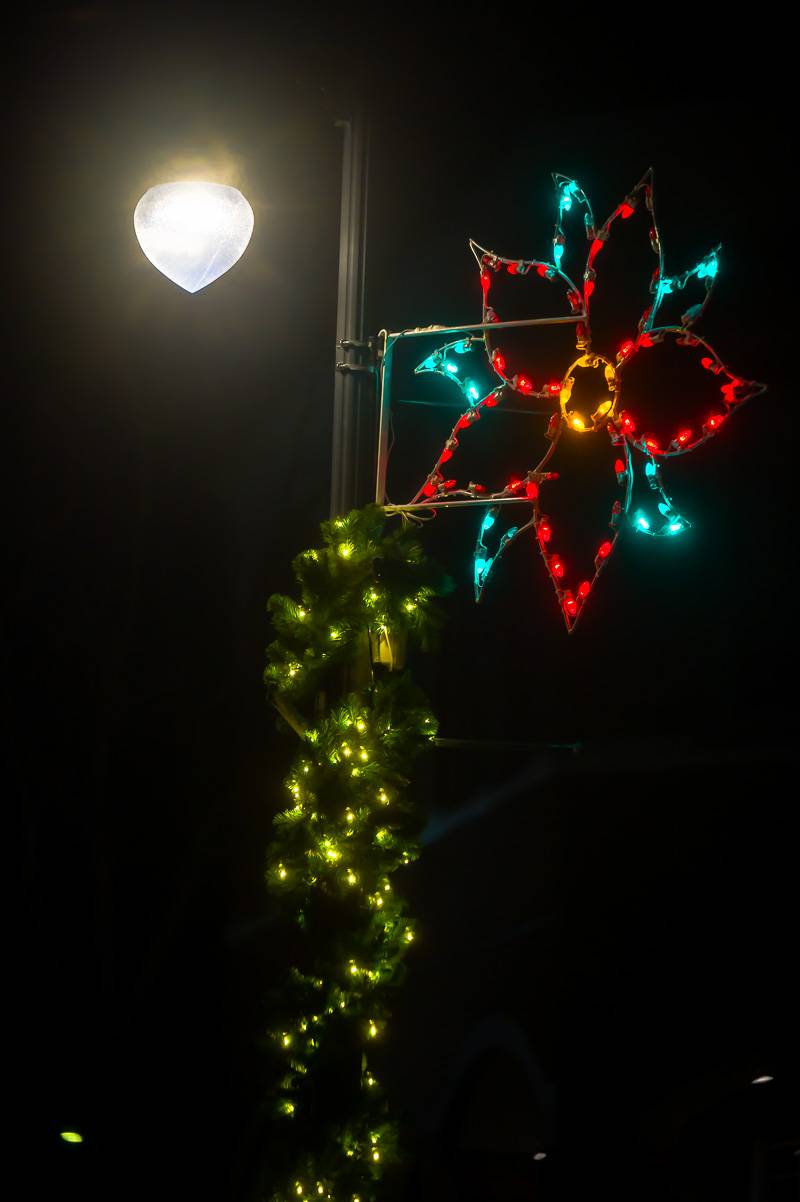

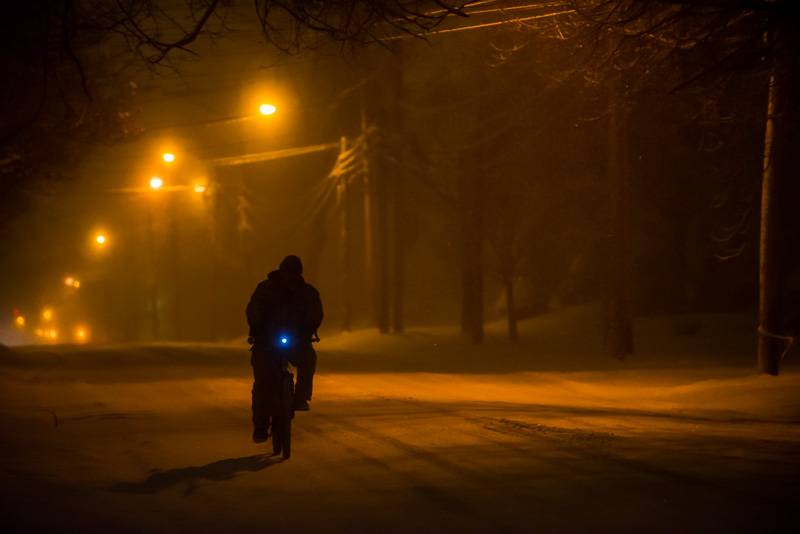
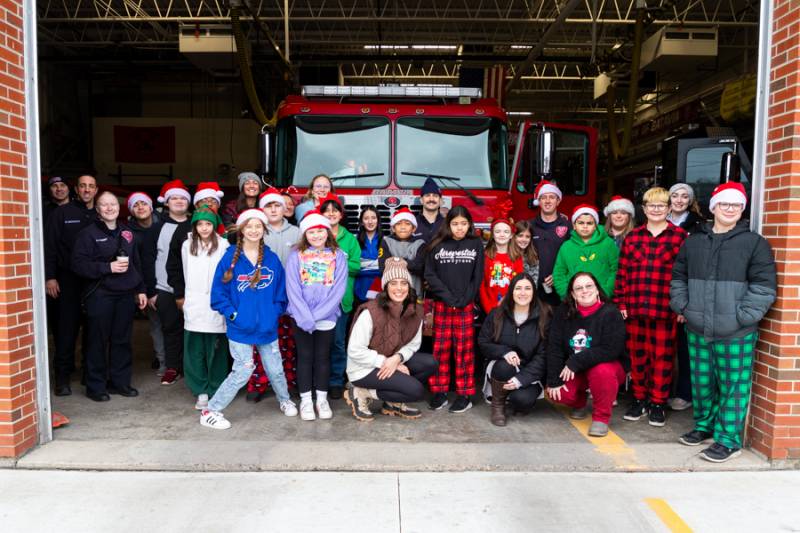
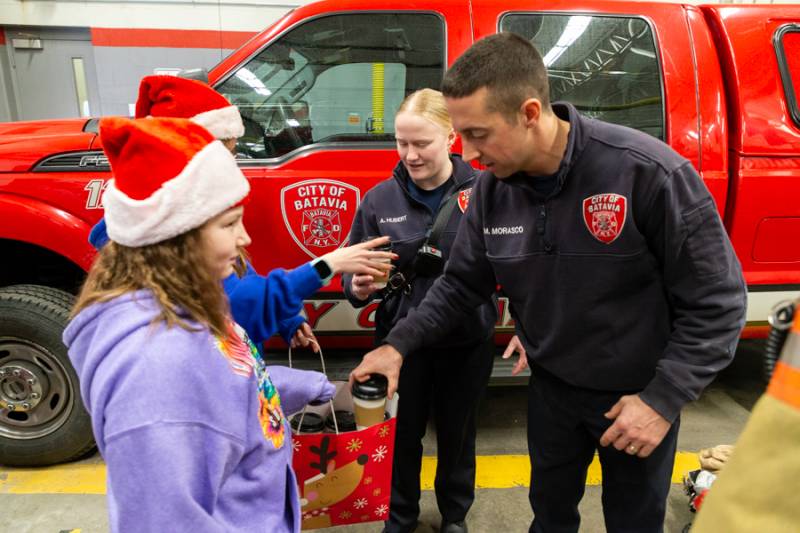
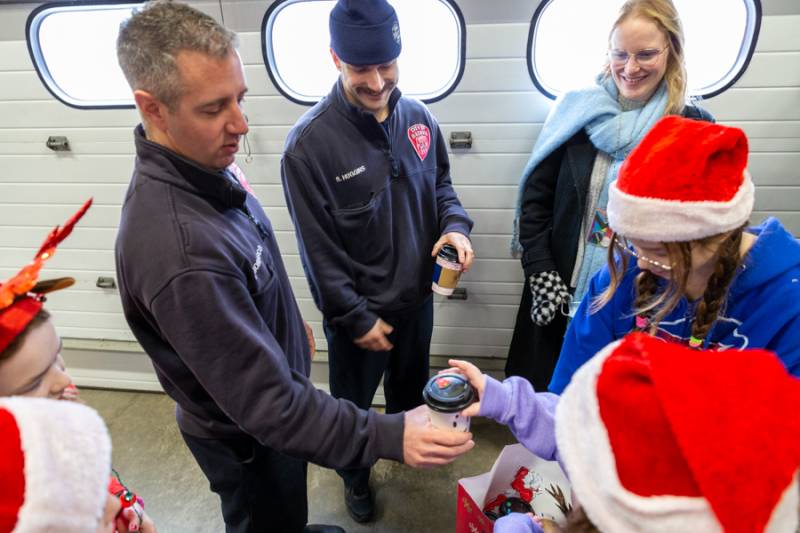
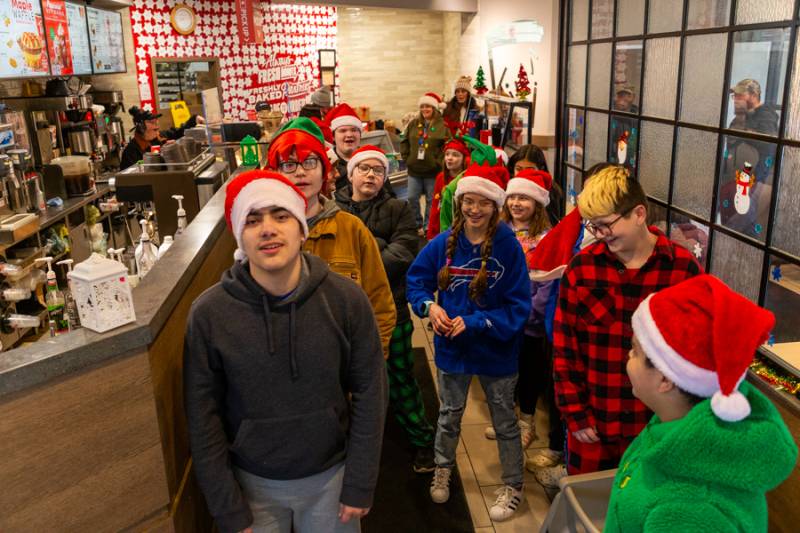
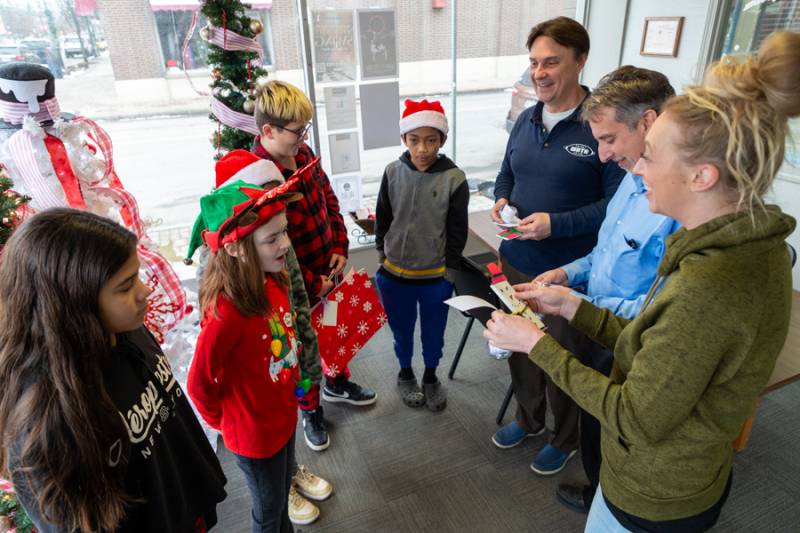
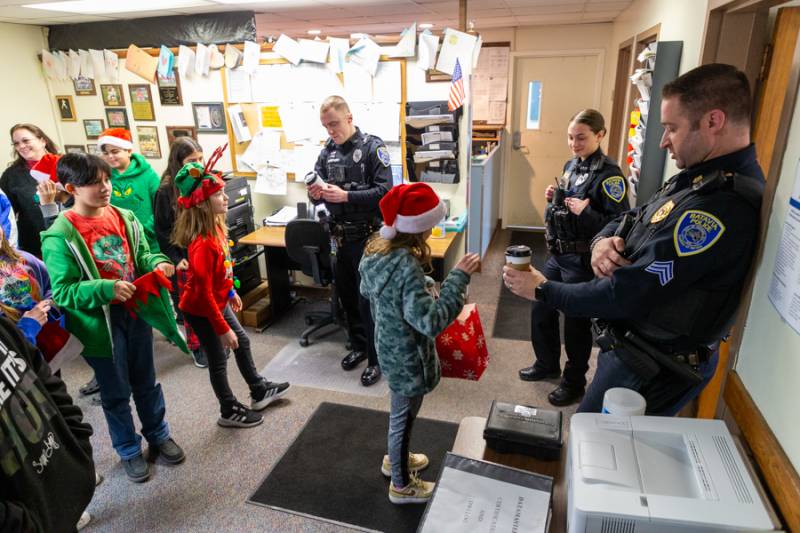
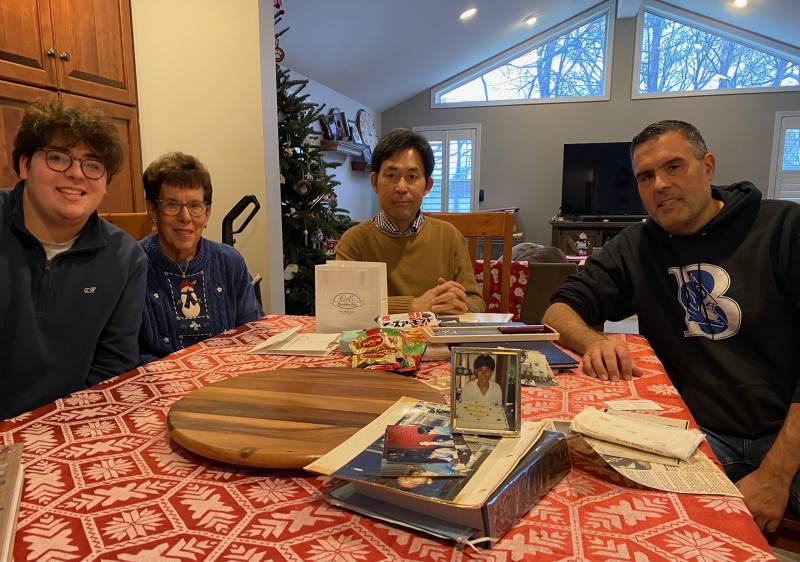
Of all the locales seen so far — Cooperstown and the beverage trail, Myrtle Beach, Philadelphia, Niagara Falls, the must-see for all international visitors, Amish country in Ohio, and cities from Los Angeles to Boston — Hiroshige Yamabe quickly pinpointed his favorite place in America so far.
“Batavia, of course,” he said.
Yamabe, whose American friends call Hiro, is getting to know Batavia and Western New York fairly well after his eighth visit this week. His first one was as exchange student from Tokyo, Japan when the Smith family hosted him — from parents Jim and Mary to son Jason — and they have forged a relationship that has endured more than three decades.
Yamabe is director of procurement and strategic sourcing for Jacques Marie Mage, a luxury eyeglass and sunglass company. His job often takes him to California and Connecticut, which are nice to visit, but they’re not the same, he said, as Batavia’s homey — he needed some help with the phrasing — laudable appeal.
“So I feel, like, more relaxed, and they're something I expect, the ground on the earth's crust — salt of the earth,” he said Monday during his visit to Jason Smith’s Batavia home.
Yamabe has come to regard the Smiths as true friends and a second family, he said. And Batavia as his second home. Jason Smith met him as a fellow student and musician at Batavia High School, after his original host family didn’t work out. The Smiths agreed to take the teenager in, and he lived with them for about seven months.
Since then, Jason has visited him in Japan, attended his wedding, and Yamabe in turn went to Jason’s wedding, and has made several return trips to a Smith residence — whether it be the parent’s home, Jason’s apartment and now at Jason’s own family home.
This trip was one of a culinary experience — touring many local haunts, including Eli Fish Brewing Company, Rancho Viejo, Miss Batavia Diner, Cinquino’s, Southside Deli and Avanti Pizza & Wood-Fired Kitchen, which serves up huge slices, Jason said, in Medina.
The reunited classmates also visited the late Jim Smith’s grave, as Yamabe has been kept up to date on all of the family news through the decades, and called Jason once he learned his host dad had died earlier this year.
“They made a decision that they accept me. It was my pleasure to be hosted,” Yamabe said. “So I'm very pleased with that. I always like to think of, like, the family and all the friends here … I always think that's a good experience, is the love from the family here.”
Mary Smith recalled how Yamabe’s first host family didn’t quite work out. She didn’t share the details but said that the high school principal reached out to Jason, a student at the time, to see if perhaps his family would be able to help out. They stepped up and offered to host this visitor who eventually grew so close to the family that they didn’t want to see him go back to Japan.
“We had a big party for him and there’s a lot of crying kids, it was very sad when he had to go back,” she said.
She remembered how he liked the Buffalo Bills, so they gave him a Bills jersey for Christmas — and he was “thrilled,” and how his Christmas cookies had to be bare, with no icing, since he’s not one for sweets. When it snowed, Yamabe would shovel the driveway right down to the nub of the blacktop, which seemed to impress the Smiths, she said.
“It was like losing a family member,” when he returned to his home, she said.
They have exchanged gifts over the years — Mary has a curio cabinet full of Japanese keepsakes -- and Jason’s table had some goodies from this trip — a hand-crafted knife, one of the Japanese region’s specialties, and some candies, including Kit Kats, which are pronounced kitty katto, and mean triumph, Yamabe said. They are considered a good luck item to give to people, and the tiny wrapped packages even include lines to write messages to the recipient.
Of course, of all the tangible items, there are the memories of spending time together, trying each other’s cuisine — Yamabe enjoyed his first garbage plate — and meeting up with old friends, as Yamabe has done with BHS classmates. And when Jason and Hiro get together, they talk about their jobs (Jason is superintendent of Batavia City Schools), their wives and families and life in general.
“We became good friends in high school. We're just kind of continuing naturally. And he came back and I've been there twice,” Jason said. “We just pick up where we left off.”

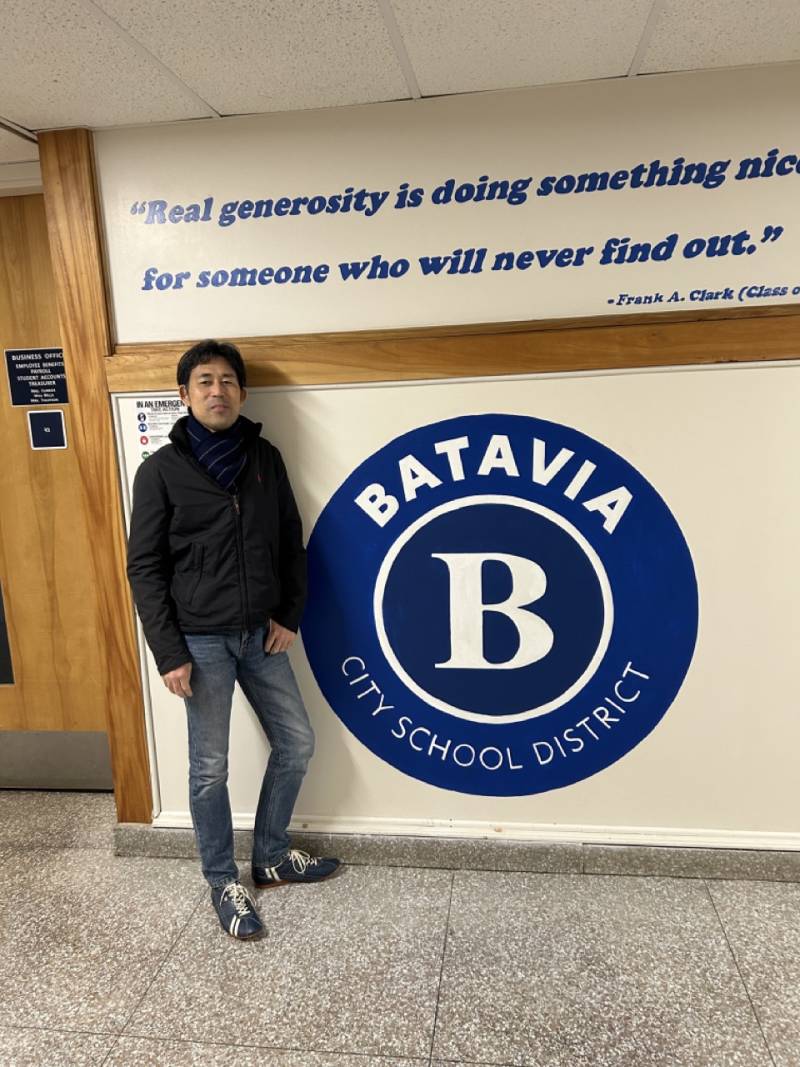
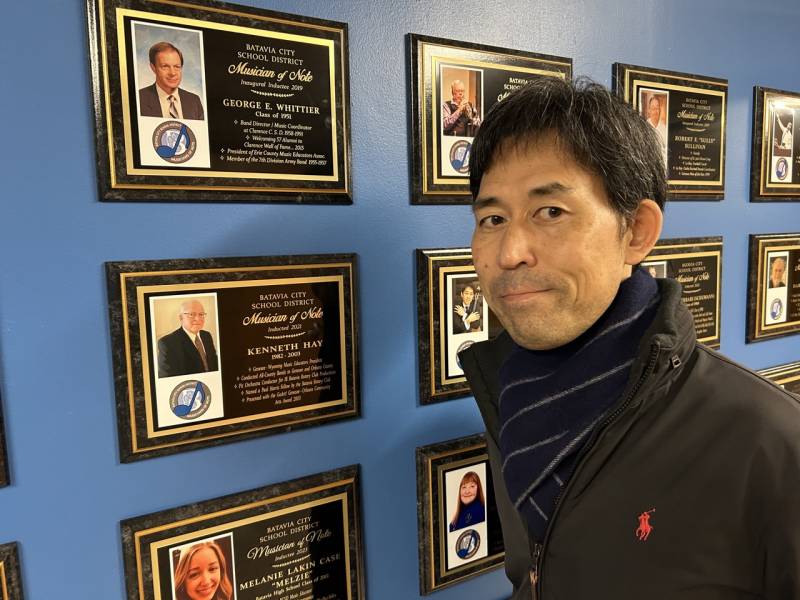
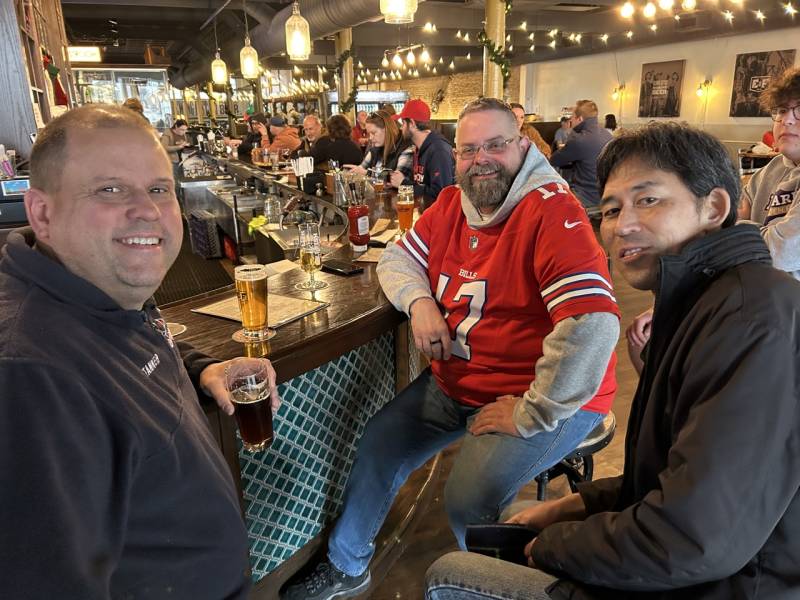

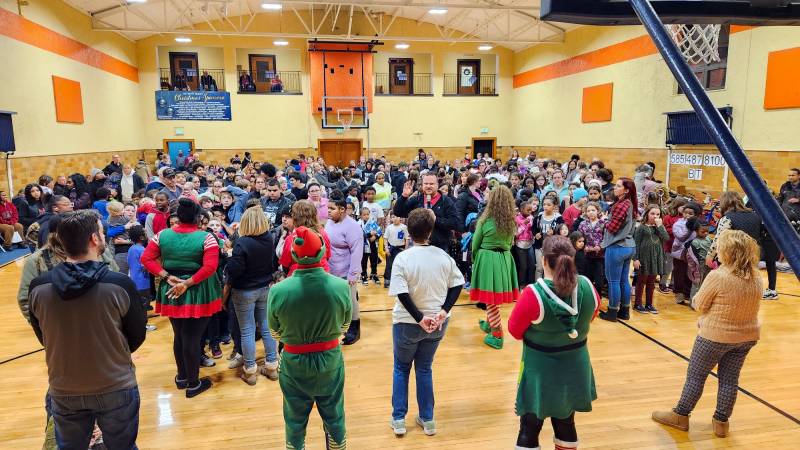
The City Church Activity Night Annual Toy Giveaway, a night to assist those in need during the holiday season, was a huge success on Tuesday, Dec. 19 at St. Anthony’s on Liberty Street in Batavia.
Every child received a gift or two that attended the event, organizers said. There were even 30 bicycles that were given away to children that needed or wanted a bike. Pastor Ryan Macdonald, the lead pastor of City Church, said that “there was a time when I was a child that we had nothing.; I remember those days.”
“Now that we have the means to help families, that’s what we want to do,” he said.
City Church’s volunteers all came together for a night of fun, joy and community, organizers said. Approximately 28 businesses, community members, and church members made a difference by making some sort of donation of toys and/or financial support.
“Our slogan is, ‘we do life together,’ and we certainly did not do this night alone,” Macdonald said
With a stage full of toys, makeup, sports equipment, and games, children were walking away with smiles on their faces, organizers said. There were carriage rides provided by Cherry Grove: The Yohe Family Farm, and chili was given to all in attendance.
And of course, Santa and some of his elves made an appearance for visits and photo ops with the children.
Next year, City Church plans to continue this tradition of helping and blessing its community, organizers said, and they encourage you to not spend Christmas alone and welcome you to join them on Christmas Eve at 8:30 or 10 a.m. at 210 E. Main St. and/or at 6 p.m. at 114 Liberty St., Batavia.
Submitted Photos

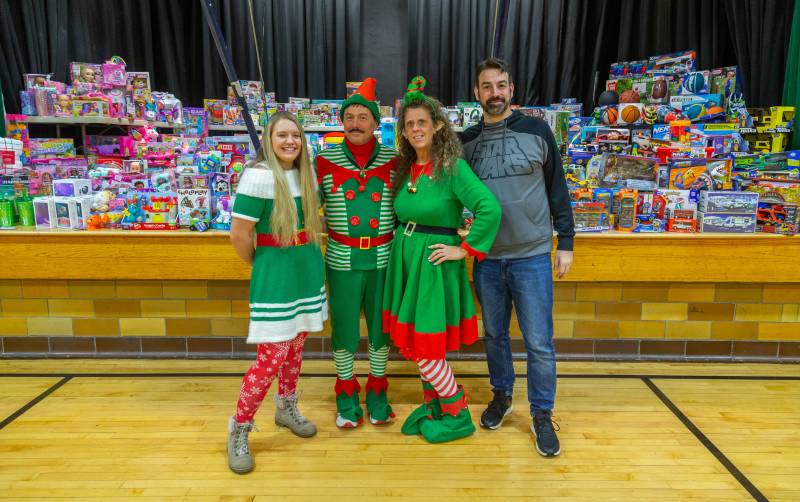
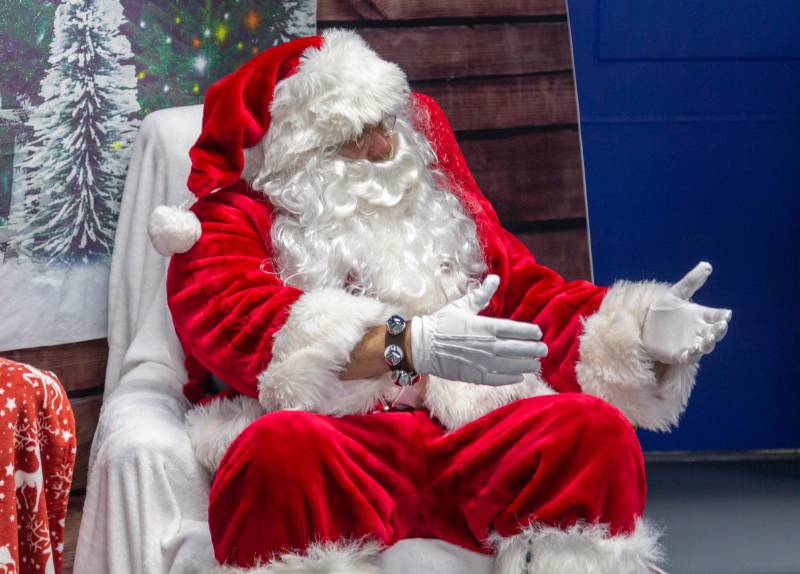
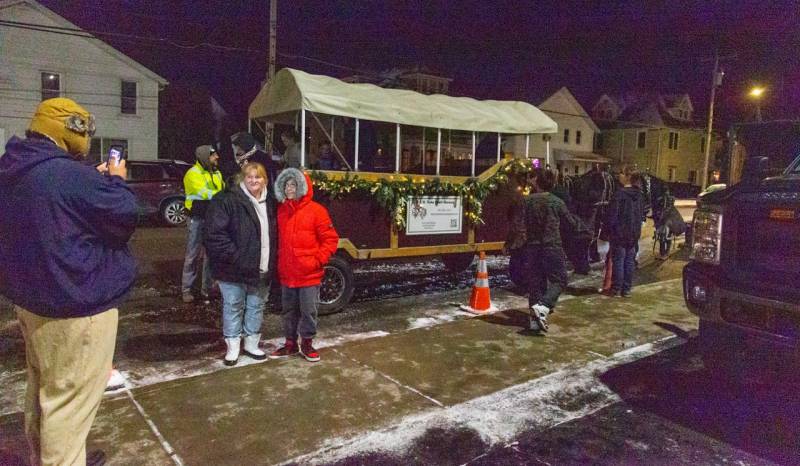
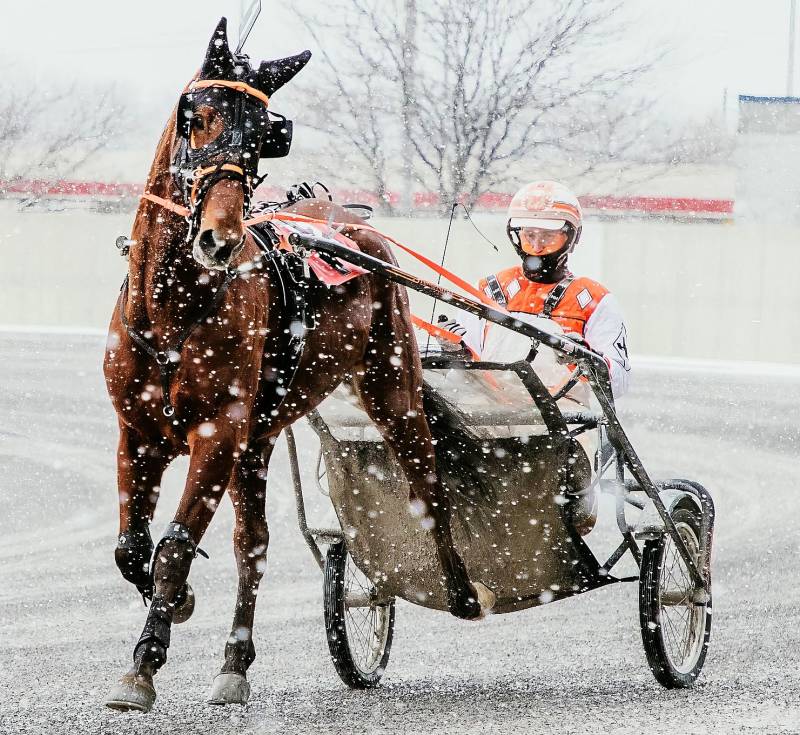
With the books now finalized after the last live card of racing took place on Saturday (Dec. 9), Batavia Downs saw a major growth in handle that started last January during their first winter meet in 20 years and ended the year showing a 75% increase in wagering over the track’s previous record high.
The total all-source handle for the entire 67 days of live racing conducted at the Downs in 2023 was $15,414,846, which easily eclipsed the old record high of $8,779,409 established in 2019 over that 63-day meet, and set a new all-time high wagering mark during Western Regional Off Track Betting’s 21-year tenure as owner of the track.
Breaking down the numbers further, the average daily all-source handle of $230,072 bested the old mark of $146,987 set in 2021 (for a full-year schedule) by 57%. The average daily handle in 2020 was $170,268, but it was during a Covid-shortened meet that ran only 42 days.
Another number that saw an uptick at the Downs in 2023 was the total on-track live handle of $935,790, which rose 2.5% from the $912,822 wagered last year.
“The momentum in the handle started during our winter meet when we set several daily records and picked right back up when we returned in July. I am very happy that the wagering support from our customers, both remote and live, carried over to our regular meet,” said Don Hoover, Director of Live Racing at Batavia Downs.
The momentum Hoover eluded to started on Monday (Jan. 30) after bettors came out in force to pump $340,602 (from all sources) through the windows to set a new all-time single card mark at Batavia Downs. That total was the largest handle recorded since WROTB reopened the Downs in 2002, and surpassed the old mark of $339,000 which occurred during the 2019 New York Sire Stakes Night of Champions finals.
Then only a week later on Monday (Feb. 6), that record was broken again after $348,205 was wagered on the very competitive third leg card of the Western New York Pop-Up Series.
The healthy daily average handle for the short 14-day 2023 winter meet was $238,895, and compared to $227,742 for the 53 day summer/fall meet, remained almost identical all year despite increased competition by the greater number of tracks that raced live later in the year.
Batavia Downs will once again host a winter meet in 2024 and it begins on Thursday (Jan. 4) with 16 dates that run through Monday (Feb. 26). Post time for every race day will be 3 p.m.
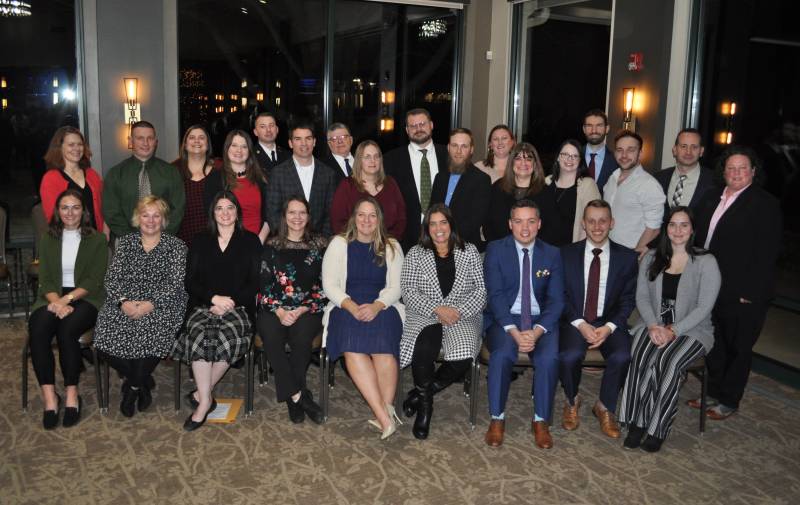
Press Release:
Leadership Genesee (LG) presented awards honoring the 26 members of the Class of 2023 at the Annual Graduation Celebration at Terry Hills on Nov. 30.
Class members from the private sector include Alleghany Farm Services, Genesee Patrons Cooperative Insurance Co., Hunt Real Estate ERA, Lizzie’s Ice Cream Camper, RRH United Memorial Hospital, Liberty Pumps, Porter Farms, Tompkins Financial, Batavia Downs Gaming and Hotel, Freed, Maxick CPAs, P.C., Tonawanda Valley Federal Union and UConnectCare (GCASA).
Also included from the public sector were members from Batavia Housing Authority, Byron Bergen Central School, City of Batavia Fire Department, Genesee County Department of Social Services, Health Department, and Office for the Aging, Genesee County Chamber of Commerce, Genesee Community College, Mercy Flight/ Mercy EMS, and NYS Unified Court
System.Leadership Genesee Director Peggy Marone said at graduation, “As a group, you have shared so much quiet courage for what life throws your way, it’s the kind of courage that’s inspiring to everyone you meet, whether they know about it or not. It’s the way you hold yourselves and show the world the grit and backbone you have and without even knowing it, you
become a lesson for someone who might not know they need it, but they do… we all do. You have a collective character that will stay with me for a long time.”Leadership Genesee is a year-long community education committed to exploring Genesee County and encouraging the leader within all of us. We aim to provide well-prepared servant leaders for Genesee County ready to accept responsibility for our community’s shared concerns.
One participant said, “The experience exceeded my expectations in so many ways. I have gained a much deeper understanding and appreciation for the community I work in. I gained a better understanding of my leadership style and how to adjust to others’ styles to better serve and support them.”
The Class of 2024 will begin their journey in January. Leadership Genesee is a program of Cornell Cooperative Extension of Genesee County, an employer and educator recognized for valuing AA/EEO, Protected Veterans, and Individuals with Disabilities, and provides equal program and employment opportunities. For more information about Leadership Genesee, please visit our website at http://genesee.cce.cornell.edu/leadership-genesee.
Press Release:City Church's annual Toy Giveaway is Tuesday from 6 to 8 p.m., and will be held at St. Anthony's Community Center, 114 Liberty St., Batavia.Every child will walk away with a toy this night. We will also have carriage rides, food, art projects to do, basketball, games, and friendship! We want to be a blessing to our community and those around us. Everyone is invited to come out and celebrate with us! We do life together.
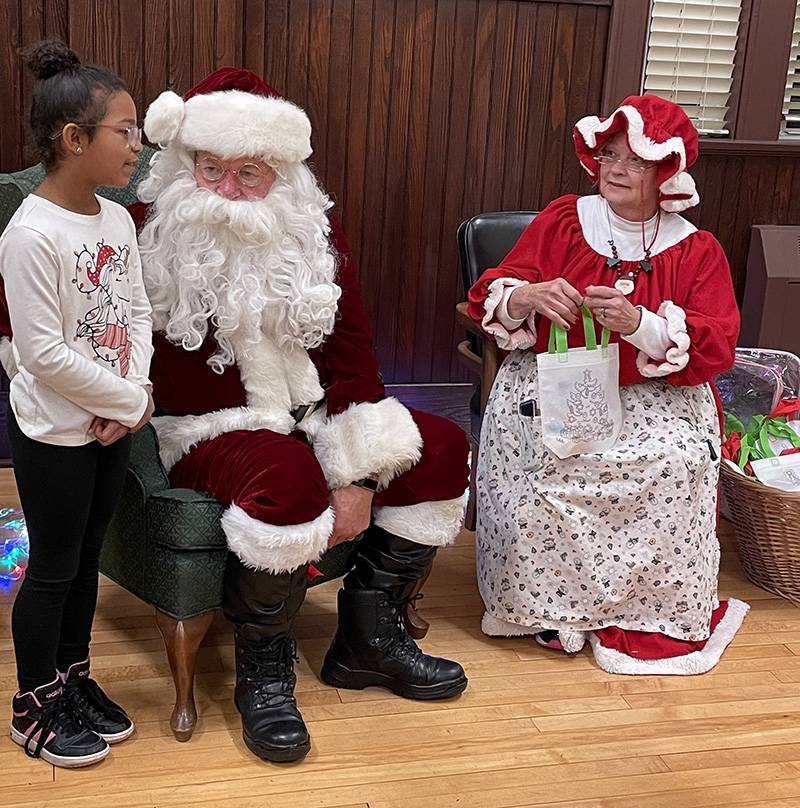
In honor of Bob Zeagler, who was well known in Batavia for decorating his Jeep Cherokee for the various holidays throughout the year, especially Christmas, and dressing up in detailed costumes to match, area residents again on Sunday held the Third Annual Bob's Christmas at Batavia First Presbyterian Church.
This year included a Santa's Workshop with presents for kids.
Photos by James L Burns.
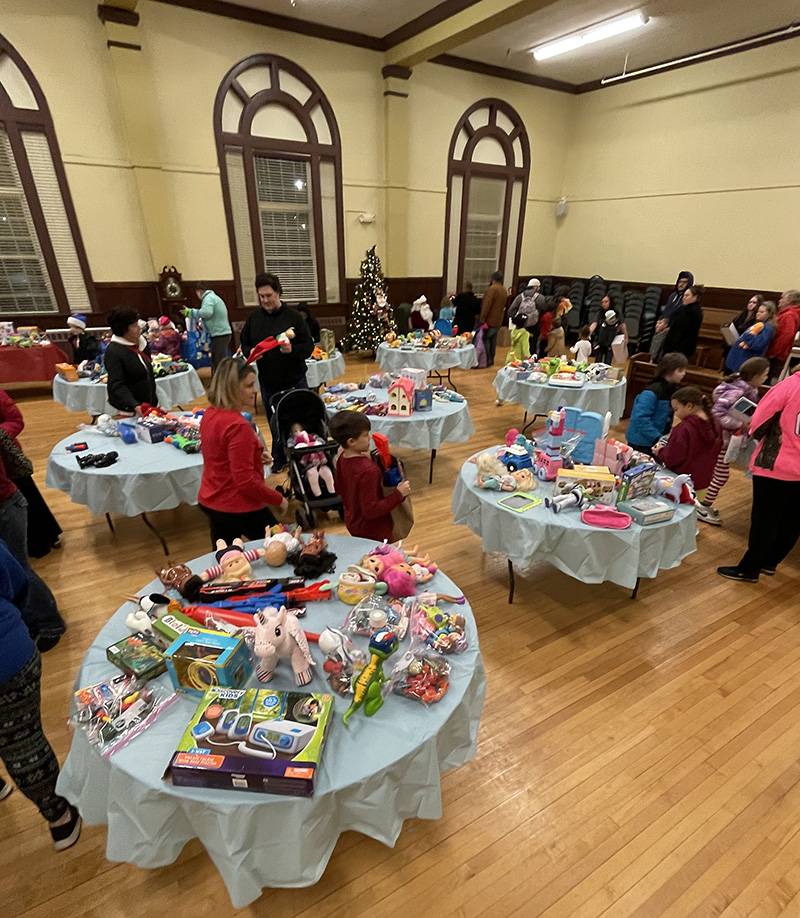
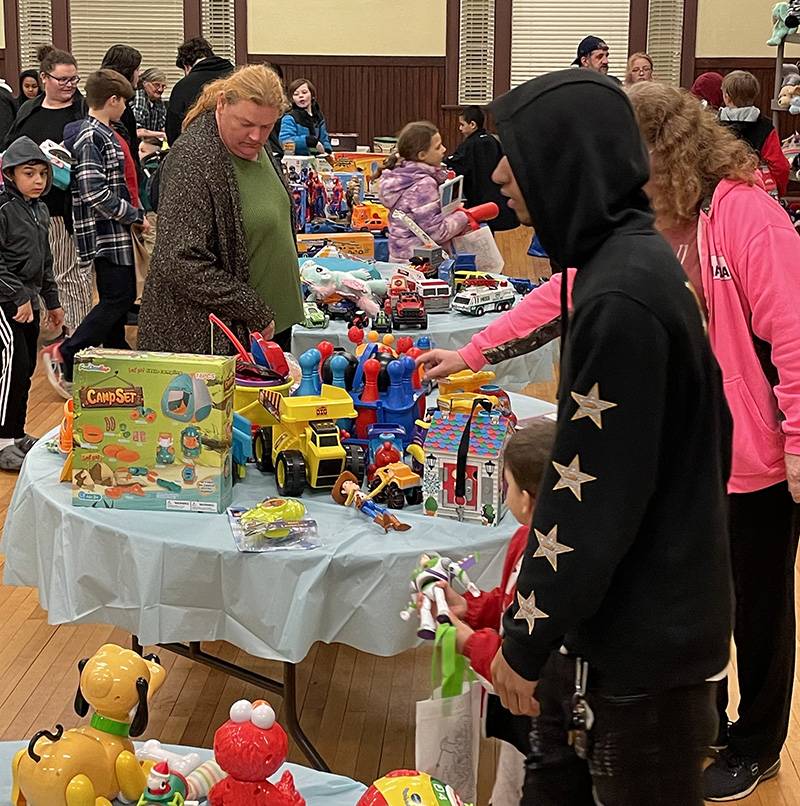
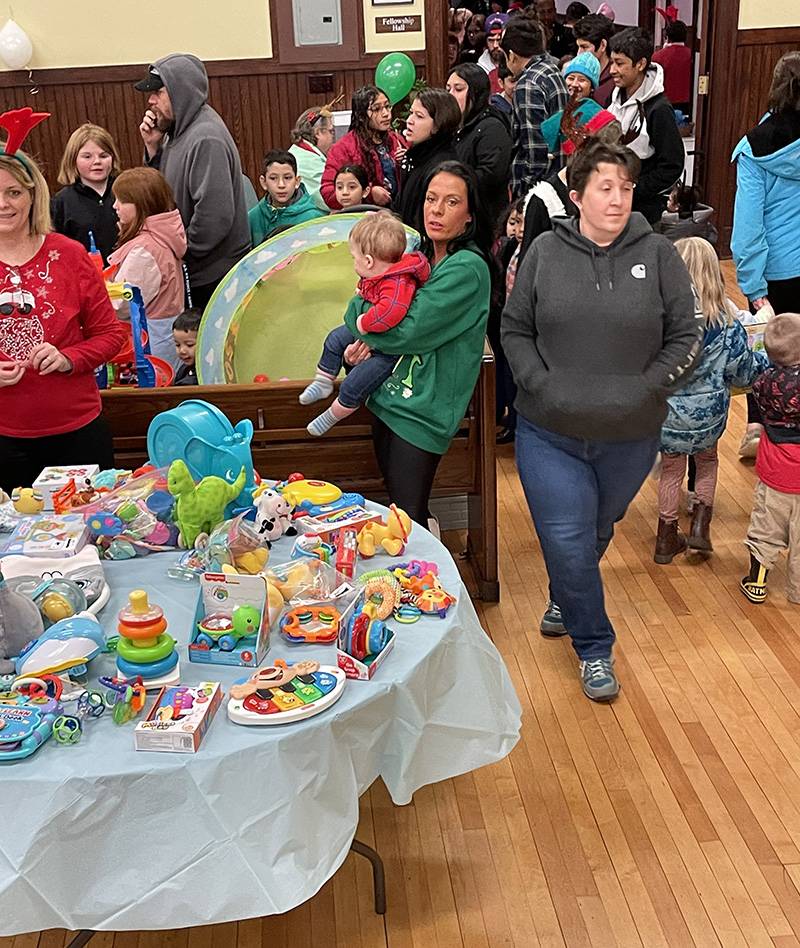
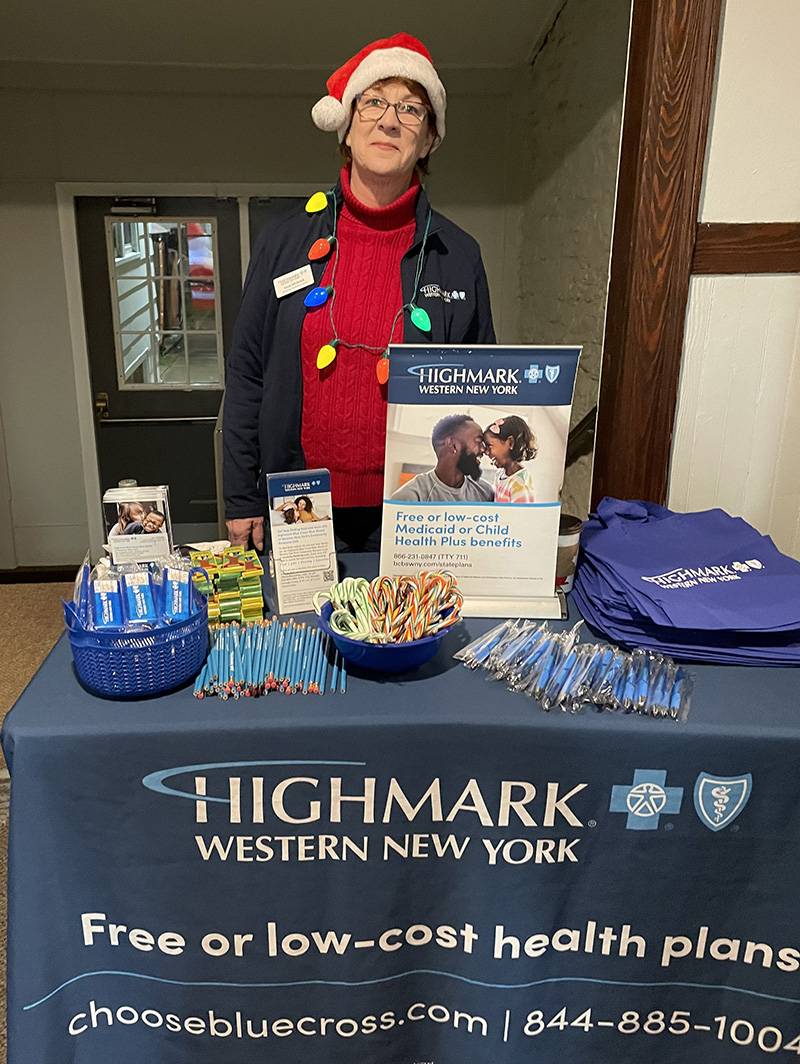
Town of Batavia Fire has been dispatched to Veterans Memorial Drive in Batavia following a report of a box truck on fire that is hauling mattresses.
UPDATE 1:42 p.m.: Fire is under control.
Copyright © 2008-2022 The Batavian. All Rights Reserved. Privacy Policy | Terms of Service